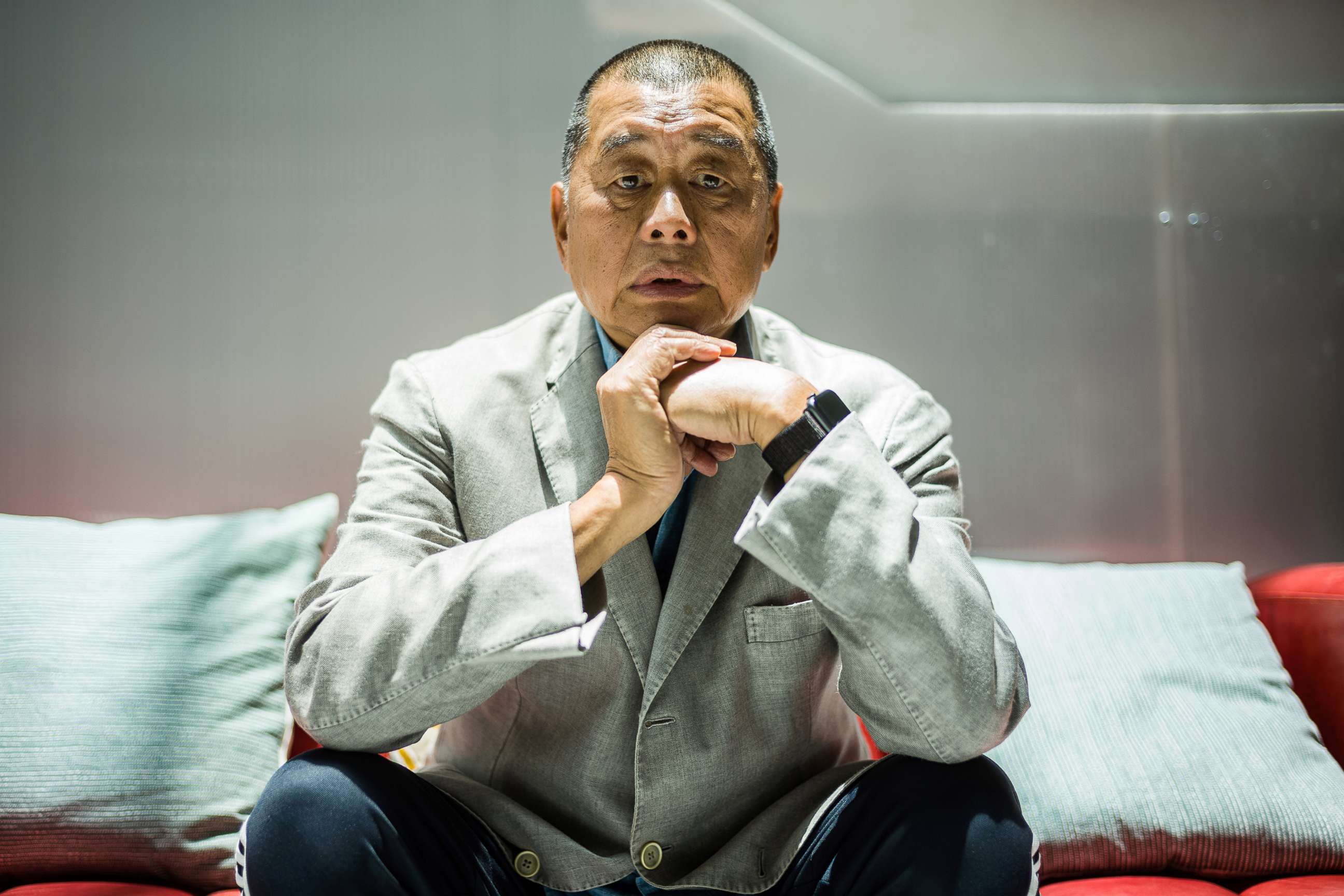Hong Kong rebel media tycoon Jimmy Lai becomes most prominent person charged under national security law
He is accused of colluding with foreign forces.
Hong Kong media tycoon Jimmy Lai has been charged under the city's controversial national security law, accused of colluding with foreign forces, as a crackdown on Beijing critics intensifies.
Lai is the most-high profile person so far to be charged under the sweeping new law, which Beijing imposed on Hong Kong at the end of June to clamp down on the pro-democracy movement after last year's unrest. The law targets succession, subversion, terrorism and collusion with foreign forces, but critics say it breaches the "one country, two systems" framework, which is meant to guarantee Hong Kong people a degree of autonomy and freedoms not afforded to the mainland.
In a written response to ABC News, Hong Kong police confirmed that a 73-year-old man was charged with "collusion with a foreign country or with external elements to endanger national security" and that the case will be mentioned at West Kowloon Magistracy on Saturday morning.
Local broadcaster NowTV, quoting unnamed sources, reported that Friday's new charge is related to Lai's actions on Twitter and his media interviews, in which he may have called on other countries to sanction Hong Kong officials.
Before authorities confiscated his passport in August, following a dramatic arrest at his home, Lai had frequently visited Washington and met with U.S officials, including Secretary of State Mike Pompeo.
Mark Simon, a close aide of Lai, told ABC News that Lai's team only learned of the new charge after Friday's media reports.

Lai is already being held in custody until April on fraud charges for allegedly violating the terms of a lease housing his Apple Daily, a pro-democracy tabloid. He was denied bail last week.
It's the latest in a wave of recent arrests and prosecutions targeting the city's democracy activists.
Last week, three young activists were jailed for their role in the anti-government protests, including 24-year-old Joshua Wong.
Along with the remaining pro-democracy lawmakers having also resigned en masse last month, the most prominent opposition voices in Hong Kong have essentially been silenced for at least the coming year.
News of Lai's charge under the national security law comes on the heels of the Trump Administration sanctioning 14 senior Chinese officials over their role in the crackdown of opposition voices in Hong Kong and Beijing vowing retaliatory measures.
Back in August, after Lai was arrested, around 200 police officers were also sent to raid the offices of Apple Daily, which he started 25 years ago.
In an interview with ABC News at his home in September, while he was out on bail, Lai said he was prepared to go to jail.
"I knew it would come, I did not know that it would be so fast. but that's fine, and I'm OK, I accept it. At this time of my life, I'm almost 73, it's a payback time. Whatever happens is a redemption," said Lai, a pious Catholic.
"I came here with $1, escaped from China when I was 12. This place gave me everything," he added.
Lai said that his high-profile status, outspokenness and ownership of one of the only opposition media companies left in Hong Kong, makes him "a very logical target for Beijing."
Journalists at Apple Daily, who spoke to ABC News over several weeks this past summer, appeared deeply determined to continue their work despite the controversy surrounding their boss and the city's changing climate since the national security law came into force.
"It's as if the more pressure that we face, the more important we think it is for us to do our job," said reporter Tweety, who livestreamed the 2019 protests as the events unfolded.
In September, Lai had this message for his team of determined editors and journalists: "They will have to be careful. I cannot protect them. But they are very motivated because they know now is the time to test their integrity."



